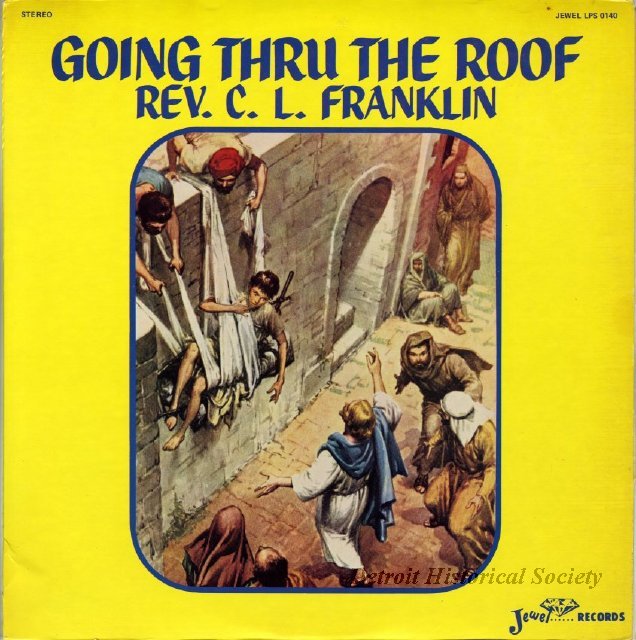Clarence LaVaughn Franklin was born on January 22, 1915 in Sunflower, Mississippi to sharecroppers. Born Clarence Walker, he adopted the surname of his adoptive father, Henry Franklin, after his mother remarried when he was young. Franklin felt called to the ministry at age 16, following in the footsteps of his maternal grandfather, Elijah J. Pitman, who had been enslaved. He studied theology at a fundamentalist seminary in Greenville, Mississippi and at LeMoyne College in Memphis, Tennessee.
In 1934 Franklin married Alene Gaines; the marriage ended in 1936. He remarried in June of that year to Barbara Siggers. They had four children: Erma, Cecil, Aretha and Carolyn. Barbara’s son Vaughn was adopted by Franklin. They separated in 1948 and Barbara moved with Vaughn to Buffalo, New York but maintained contact with her other children until her early death in 1952. Franklin never remarried.
Franklin’s 1946 move to Detroit was preceded by ministries in the South and in Buffalo. In Detroit, the Reverend Franklin became the fifth pastor to lead New Bethel Baptist Church, founded in 1932. A charismatic speaker and preacher, his sermons were broadcast on radio, and distributed on records. His preaching style was described as “a perfect mixture of profound thought and emotional power” and he became known nationwide as the man with the “Million Dollar Voice.”
C.L. Franklin was not only gifted as a speaker but also as a singer. His interest in music, and in evangelizing, led him to join the gospel tour in 1953, the first preacher to do so. It wasn’t long before he formed his own group, C.L. Franklin’s Gospel Caravan, featuring such performers as the Clara Ward Singers and his young daughter Aretha Franklin.
Noted as a civic leader, Franklin is remembered for organizing the 1963 Walk to Freedom in Detroit that attracted 125,000 marchers and featured his friend Dr. Martin Luther King, Jr. who debuted his “I Have A Dream” speech. In 1957, Franklin supported the formation of the Trade Union Leadership Council, a caucus of dissident African American members of the United Auto Workers.
The Rev. Franklin was not without faults and had some brushes with the law, including for drunk driving, drug charges, and failure to file income tax. On June 10, 1979, Franklin was shot twice during an attempted robbery at his home in Detroit. He remained in a coma for five years until his death on July 27, 1984.
